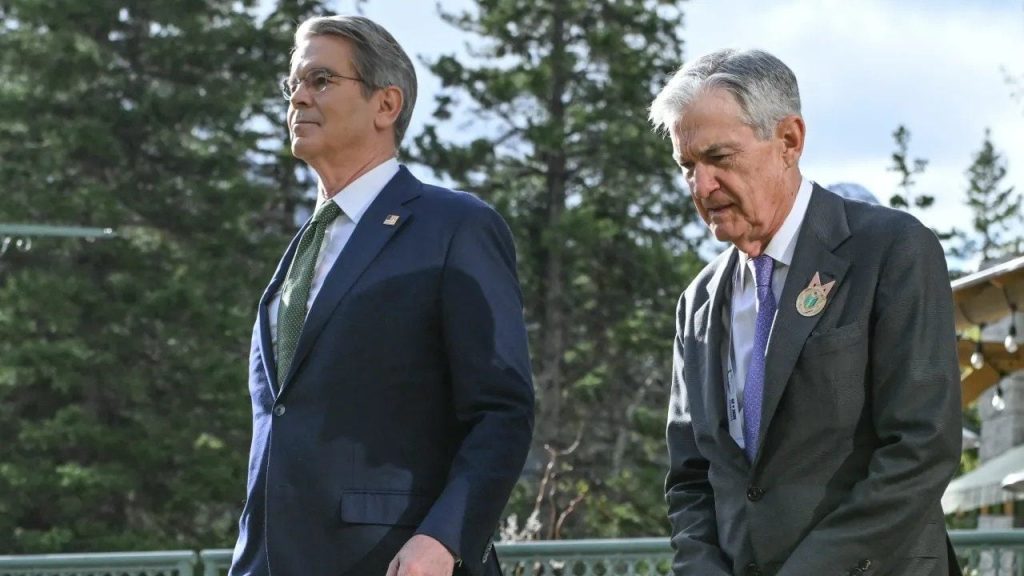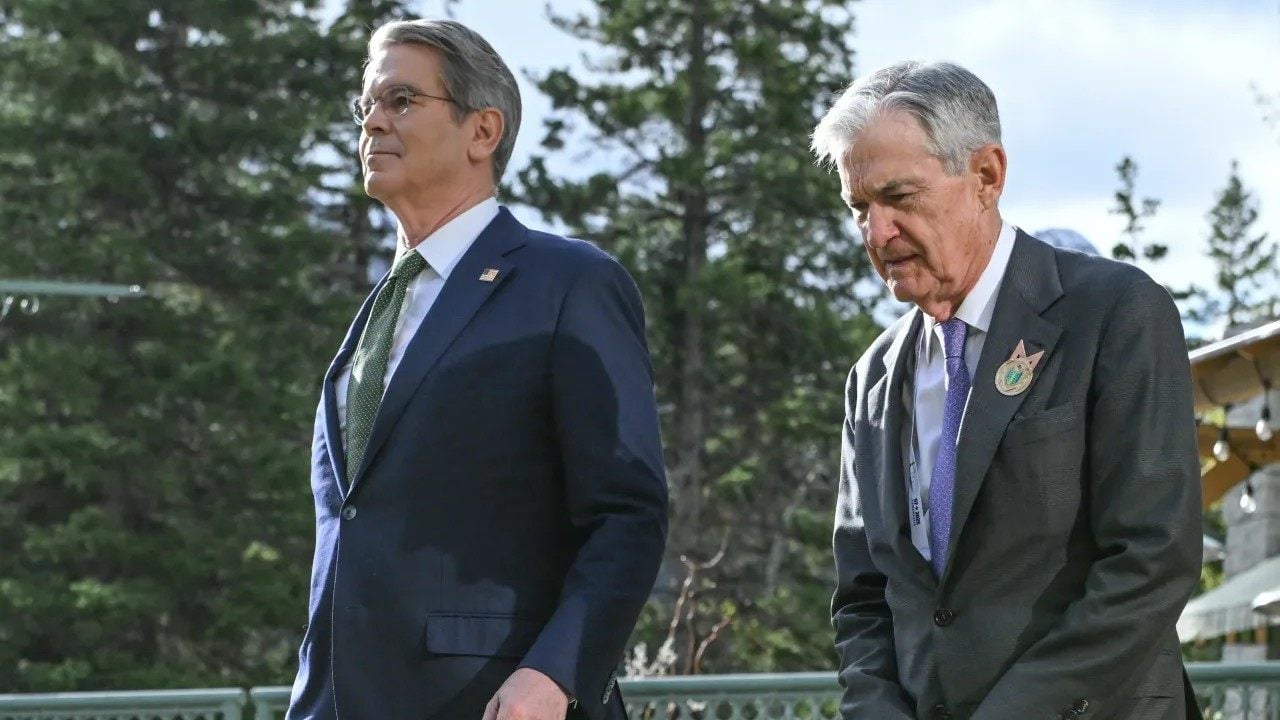
The Gathering Storm: Analyzing Treasury Secretary Bessent’s Call for a Federal Reserve Audit
Introduction: A Shot Across the Bow
The financial world is abuzz with the recent call by Treasury Secretary Scott Bessent for a comprehensive audit of the Federal Reserve. This is not a routine request; it is a bold challenge to the Fed’s operational independence and a sign of escalating tensions between the executive branch and the central bank. Bessent’s demands come at a time when concerns about the Fed’s expanding role, financial management, and perceived failures in economic forecasting are growing. This analysis delves into the motivations behind Bessent’s call, the potential implications, and the broader context of the Fed’s independence and accountability.
The Spark: Cost Overruns and “Mandate Creep”
The immediate trigger for Bessent’s audit call is the Fed’s controversial headquarters renovation project, which has spiraled to an estimated $2.5 billion, far exceeding initial projections. This fiscal mismanagement has fueled criticism that the Fed operates with insufficient oversight and accountability.
Beyond the renovation controversy, Bessent has raised concerns about what he terms “mandate creep.” He argues that the Fed’s activities have expanded beyond its core responsibilities of monetary policy and bank supervision. The Fed’s increasing involvement in areas such as climate change research, community development, and social justice initiatives is seen as a threat to its independence and a distraction from its primary mission of maintaining price stability and full employment. Bessent contends that this expansion has led to a diffusion of focus and potentially compromised the Fed’s effectiveness in managing the economy.
A Deeper Dive: Questioning the Fed’s Effectiveness
Bessent’s criticisms extend beyond specific projects and perceived overreach. He has questioned the Fed’s overall performance, suggesting that the institution’s effectiveness deserves closer scrutiny. He specifically pointed to the Fed’s “fearmongering” around US tariffs, arguing that their predictions of inflationary consequences had not materialized. This critique raises fundamental questions about the Fed’s forecasting abilities, its economic models, and its overall understanding of the forces shaping the economy.
Furthermore, Bessent has questioned the Fed’s handling of its balance sheet and its recent financial performance. He has alluded to significant losses incurred by the central bank, potentially exceeding $100 billion, raising concerns about the Fed’s risk management practices and its stewardship of taxpayer dollars.
The Historical Context: A Legacy of Independence Under Fire
The Federal Reserve’s independence has always been a delicate balancing act. Designed to be insulated from short-term political pressures, the Fed is ultimately accountable to Congress and the American people. Throughout history, there have been periods of tension between the executive branch and the Fed, particularly when their economic goals diverge.
Bessent’s call for an audit is not unprecedented. In the past, members of Congress have proposed legislation to increase oversight of the Fed, often driven by concerns about its transparency and accountability. However, a direct challenge from the Treasury Secretary, a key member of the President’s cabinet, carries significant weight and signals a potential shift in the administration’s approach to the central bank.
Potential Implications: A Shifting Landscape for Monetary Policy
The potential implications of a comprehensive Fed audit are far-reaching.
Increased Scrutiny and Accountability
An audit could lead to greater transparency in the Fed’s operations, forcing it to justify its spending, its policy decisions, and its expanding role. This increased scrutiny could enhance public trust and ensure that the Fed is acting in the best interests of the American people.
Narrowing the Fed’s Mandate
A successful audit, from Bessent’s perspective, might lead to a narrowing of the Fed’s focus, restricting it to its core responsibilities of monetary policy and bank supervision. This could involve scaling back or eliminating certain programs and initiatives deemed outside the Fed’s traditional purview.
Political Interference
Critics worry that an audit, particularly one driven by political motivations, could undermine the Fed’s independence and subject it to undue influence from the executive branch. This could compromise the Fed’s ability to make objective, data-driven decisions, potentially leading to suboptimal monetary policy and economic instability.
Market Uncertainty
The controversy surrounding the Fed audit could create uncertainty in financial markets, as investors grapple with the potential implications of a less independent and potentially less effective central bank. This uncertainty could lead to increased volatility, higher borrowing costs, and reduced investment.
The Counterarguments: Defending the Fed’s Independence
Defenders of the Fed argue that its independence is essential for maintaining price stability and fostering long-term economic growth. They point to the Fed’s track record of successfully managing inflation and responding to economic crises, arguing that political interference would only undermine its effectiveness.
They also contend that the Fed’s expanding role is a necessary response to evolving economic challenges, such as climate change and income inequality. They argue that the Fed has a responsibility to use its resources and expertise to address these issues, even if they fall outside its traditional mandate.
A Fork in the Road: The Future of the Federal Reserve
Treasury Secretary Bessent’s call for a Fed audit represents a critical juncture in the history of the central bank. It raises fundamental questions about the Fed’s role in the economy, its relationship with the executive branch, and its accountability to the American people. The outcome of this debate will have profound implications for the future of monetary policy and the stability of the U.S. financial system. Whether it leads to greater transparency and accountability or undermines the Fed’s independence remains to be seen.
Conclusion: Navigating the Uncharted Waters
The storm clouds are gathering over the Federal Reserve. As Treasury Secretary Bessent’s demands for an audit reverberate through the halls of power, the central bank faces a period of intense scrutiny and potential reform. The path forward is fraught with challenges, requiring a careful balance between ensuring accountability and preserving the independence necessary for effective monetary policy. The decisions made in the coming months will shape the future of the Fed and, ultimately, the economic well-being of the nation. The world is watching, and the stakes are undeniably high.





